By definition, Supreme God does not take birth or die. Supreme God cannot be in the circle of Birth and Death. Supreme God is eternal, immortal and almighty. Supreme God is the first being from whom the whole creation has come to the fore. Supreme God is the progenitor of all living beings.
The above mentioned statements about Supreme God are undeniable facts. Now with that notion in mind, one may ask the following question.
Is the God speaking Bhagavad Gita, Supreme God?
It is a general belief in Hinduism that Shrimad Bhagavad Gita was spoken by Shri Krishna. They also believe that the knowledge of Bhagavad Gita was given by Shri Krishna. They also consider Shri Krishna to be Supreme God. However the God speaking Bhagavad Gita in various verses talks about himself and another Supreme God. He draws a clear distinction between himself and some other Supreme God. He describes himself to be mortal whereas he describes this another God to be immortal and eternal.
Bhagavad Gita itself answers this question. Please first of all see the verses below.
Bhagavad Gita Chapter 4 Verse 5
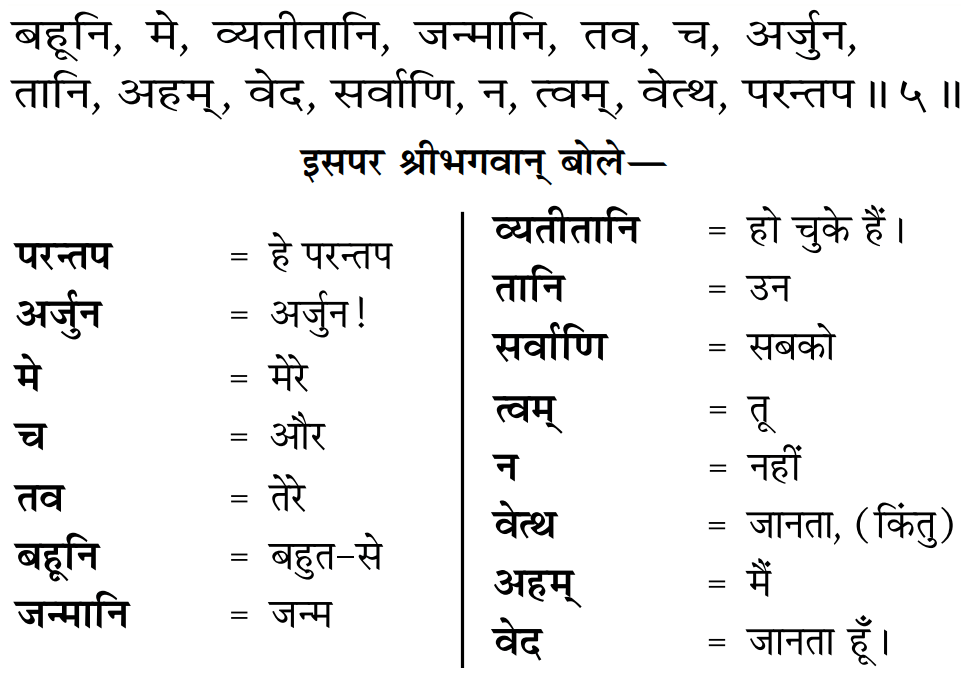
Translation: O Parantap Arjun! You and I have had several births. You do not know all of them but I know.
Gita 4.5 proves that the knowledge giver god of Bhagavad Gita is in birth and death.
Bhagavad Gita Chapter 4 Verse 9
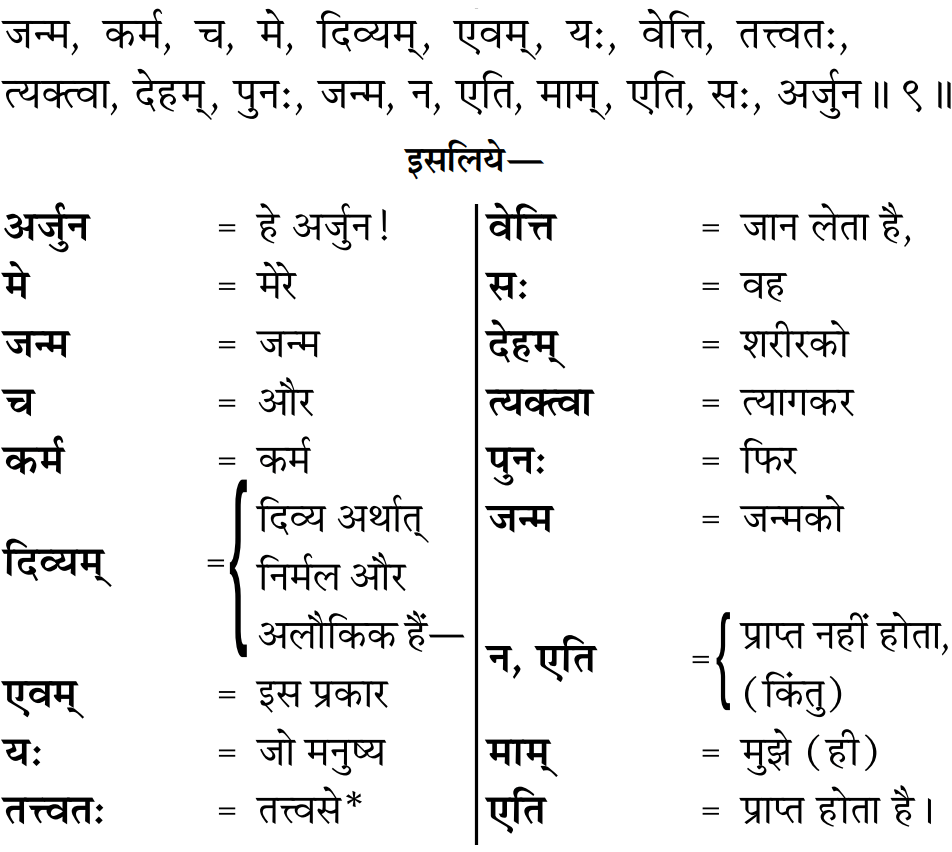
Translation: O Arjun! My births and actions are divine i.e. transcendental. Thus one who understands this in essence, he on abandoning the body does not take birth again, but one who does not know me, Kaal, in essence, comes to me only.
Bhagavad Gita Chapter 2 Verse 12
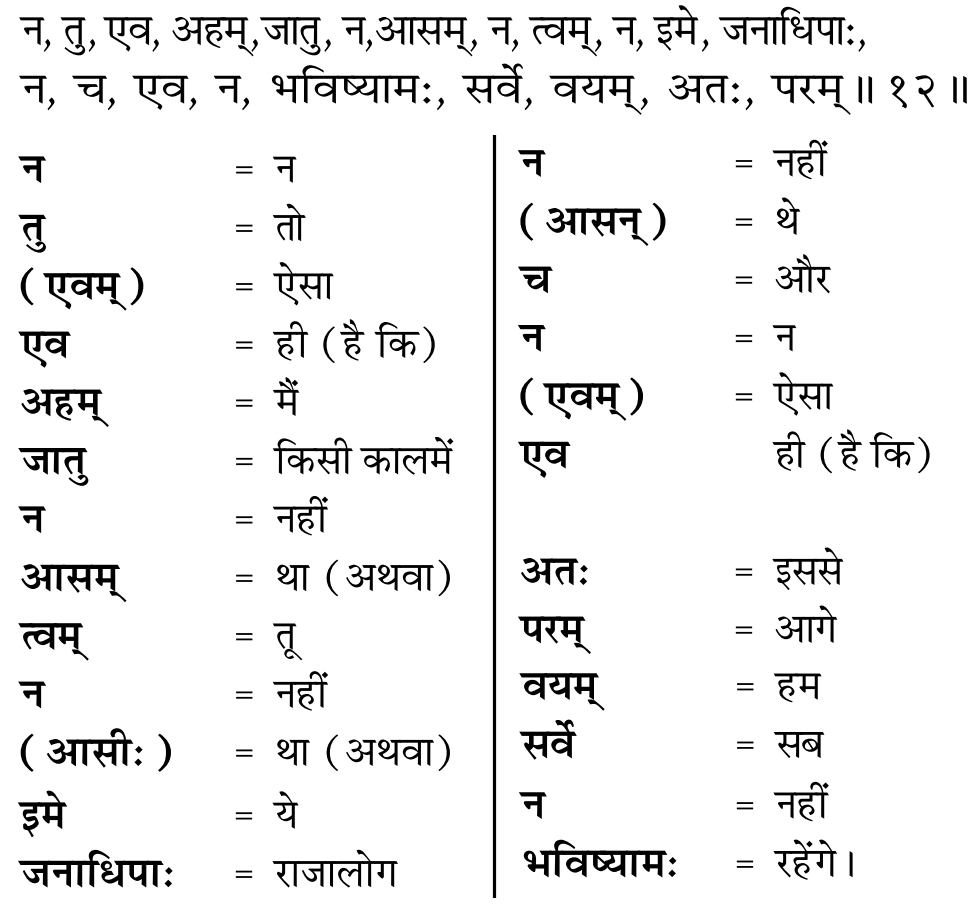
Translation: Neither it is that I was not there at any time or you were not there or these kings were not there, and nor it is that we will not be there beyond this.
Bhagavad Gita Chapter 10 Verse 2
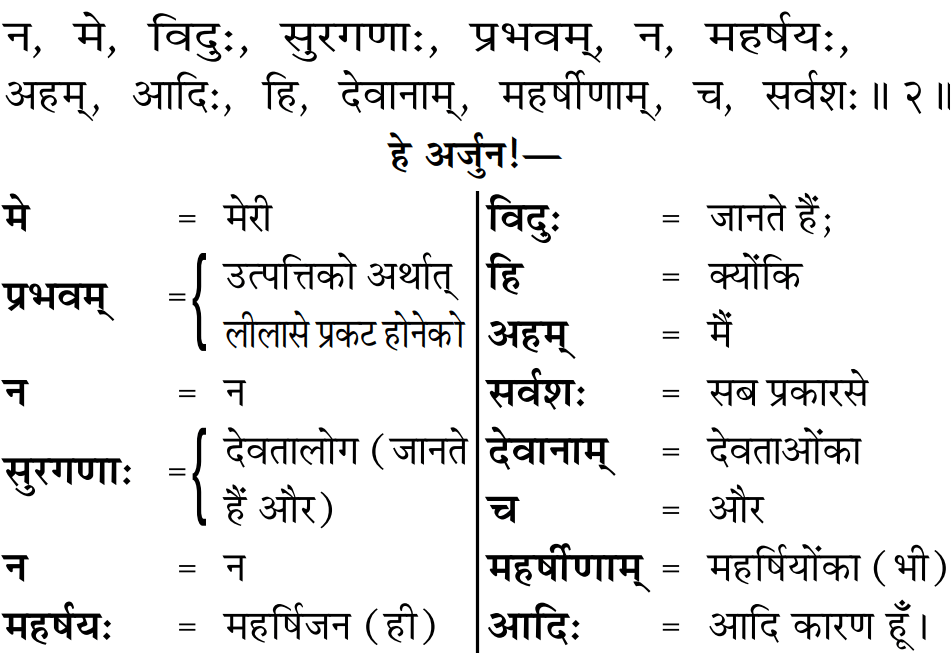
Translation: Neither do the gods, nor the great seers know my origin because I am the prime cause of the gods and the great seers in all respects.
Bhagavad Gita Chapter 2 Verse 17
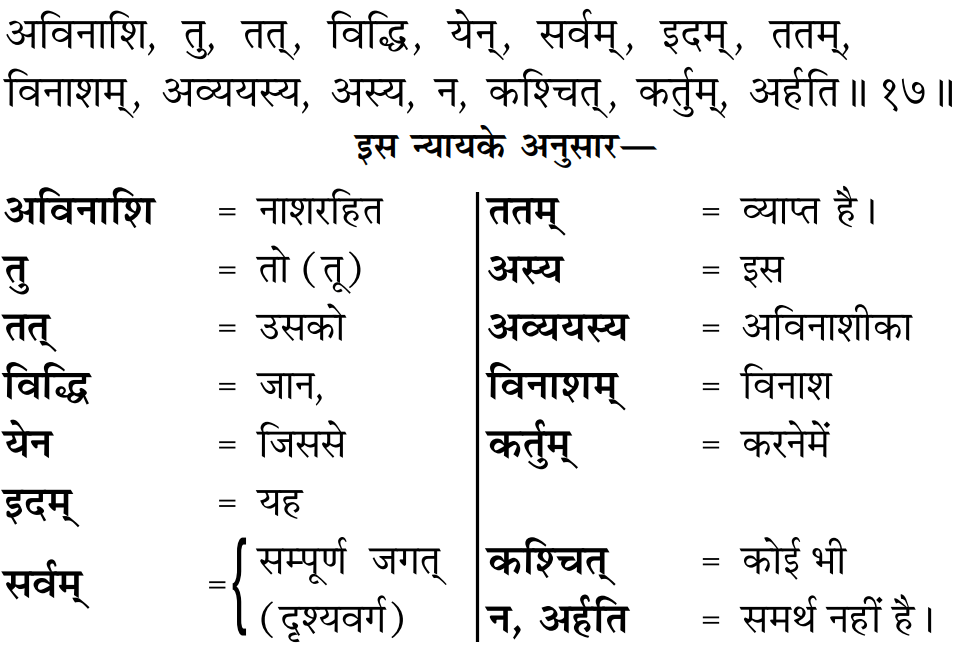
Translation: You should know Him to be indestructible/immortal from whom this whole visible world has pervaded. No one is capable of destroying this Immortal.
Bhagavad Gita Chapter 15 Verse 4
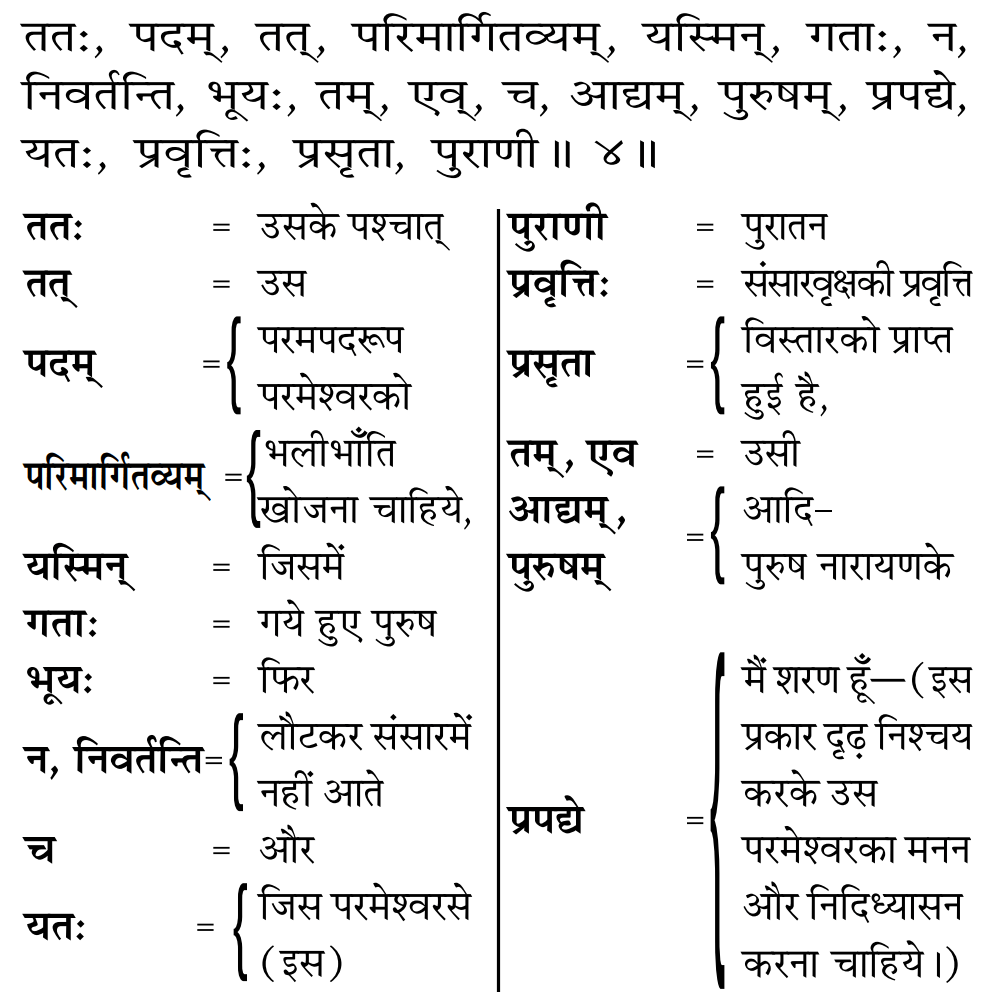
Translation: {When one finds the Tatvdarshi saint mentioned in Bhagavad Gita Chapter 4 Verse 34, Gita Chapter 15 Verse 1} after that one should properly search for the supreme place i.e. Satlok of that Supreme God. Having gone where, devotees do not return to the world, and the Param Akshar Brahm (Supreme God), from whom the ancient creation–nature has originated. I also am in the refuge of that Eternal Supreme God. One should only do bhajan of that Supreme God with full determination.
Bhagavad Gita Chapter 15 Verse 17
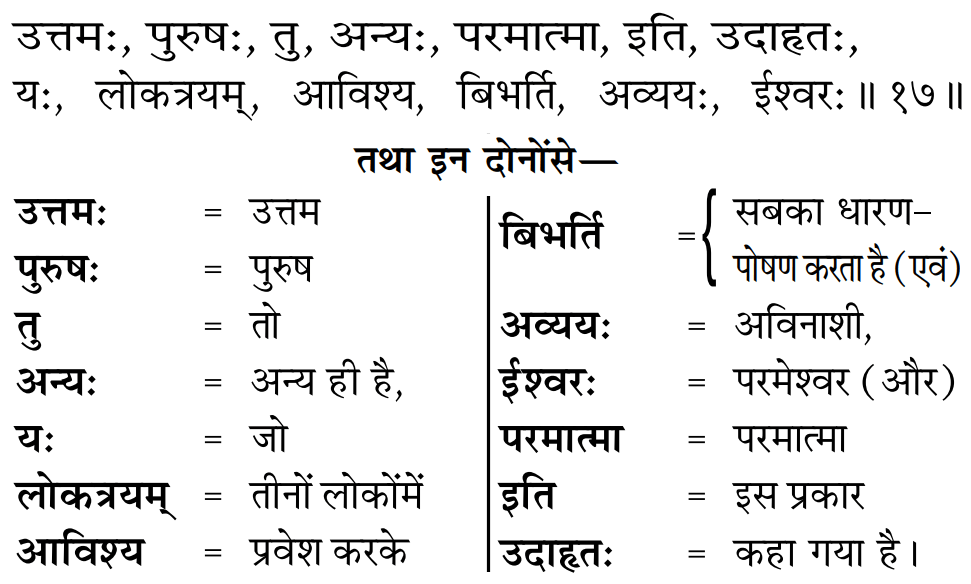
Translation: The Supreme God is, however, someone else other than the two aforesaid Gods, Kshar Purush and Akshar Purush, who by entering the three loks, sustains everyone and is called as the Eternal Parmeshwar Parmatma (Immortal Supreme God).
Bhagavad Gita Chapter 18 Verse 62
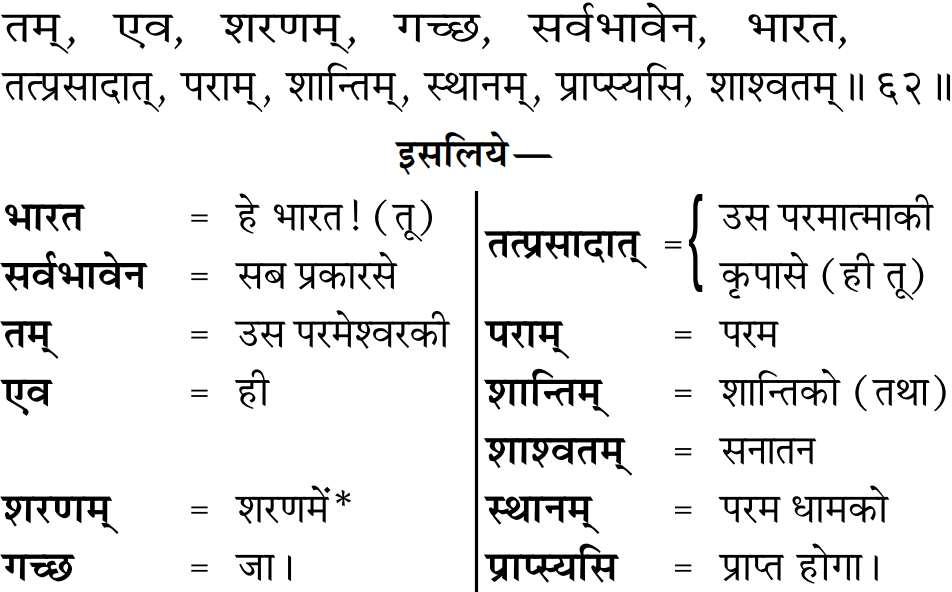
Translation: O Bharat! You, in every respect, go in the refuge of only that Supreme God. By the grace of that Supreme God only, you will attain the supreme peace and the everlasting place (dhaam/lok) i.e. Satlok.
← Whose Refuge has Shri Krishna asked Arjun to go into Is the God Speaking Bhagavad Gita Omniscient →